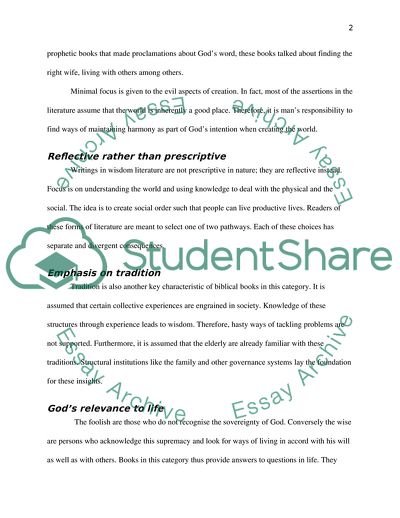Cite this document
(How is the Theme of Creation Used in the Book of Proverbs Report/Review Example | Topics and Well Written Essays - 2000 words, n.d.)
How is the Theme of Creation Used in the Book of Proverbs Report/Review Example | Topics and Well Written Essays - 2000 words. https://studentshare.org/religion-and-theology/1804095-how-is-the-theme-of-creation-used-in-the-book-of-proverbs
How is the Theme of Creation Used in the Book of Proverbs Report/Review Example | Topics and Well Written Essays - 2000 words. https://studentshare.org/religion-and-theology/1804095-how-is-the-theme-of-creation-used-in-the-book-of-proverbs
(How Is the Theme of Creation Used in the Book of Proverbs Report/Review Example | Topics and Well Written Essays - 2000 Words)
How Is the Theme of Creation Used in the Book of Proverbs Report/Review Example | Topics and Well Written Essays - 2000 Words. https://studentshare.org/religion-and-theology/1804095-how-is-the-theme-of-creation-used-in-the-book-of-proverbs.
How Is the Theme of Creation Used in the Book of Proverbs Report/Review Example | Topics and Well Written Essays - 2000 Words. https://studentshare.org/religion-and-theology/1804095-how-is-the-theme-of-creation-used-in-the-book-of-proverbs.
“How Is the Theme of Creation Used in the Book of Proverbs Report/Review Example | Topics and Well Written Essays - 2000 Words”. https://studentshare.org/religion-and-theology/1804095-how-is-the-theme-of-creation-used-in-the-book-of-proverbs.


